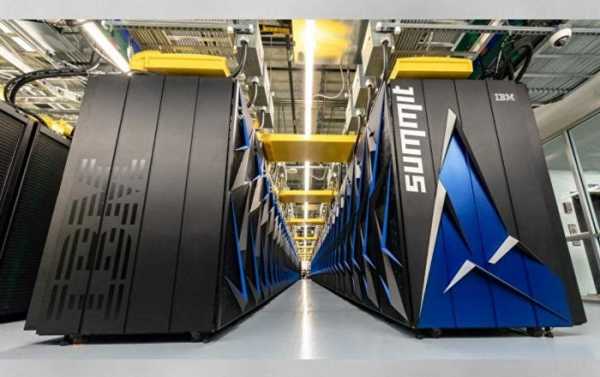
Similar attempts to find a cure for COVID-19 using computing power have also been made by Folding@home, a global crowdsourcing platform that allows PC users to “donate” extra power from their home computers to research various global diseases.
The White House Office of Science and Technology Policy has announced that 16 supercomputers located in the US, including the most powerful one in the world, Summit, will lend their 330 petaflops-strong computing capabilities to help researchers find medicine and a vaccine against coronavirus.
Supercomputers are capable of performing enormous amounts of calculations per second and can model the behaviour of molecules and proteins in the human body, thus helping researchers to determine which compounds will be most effective against specific diseases, such as COVID-19. Namely, these computers can predict which chemical compound will block the proteins that the coronavirus uses to bind to and infect healthy cells in a body.

The ultrastructural morphology exhibited by the 2019 Novel Coronavirus (2019-nCoV), which was identified as the cause of an outbreak of respiratory illness first detected in Wuhan, China, is seen in an illustration released by the Centers for Disease Control and Prevention (CDC) in Atlanta, Georgia, U.S. January 29, 2020
The united power of these 16 supercomputers will be managed by the COVID-19 High Performance Computing Consortium, whose experts will be reviewing research applications from academics, businesses, and the government. The consortium will decide which of these proposals is most promising to be modelled using these supercomputers.
The Summit supercomputer has already been used twice to analyse a total of 8,000 chemical compounds to narrow them down to a list of 77 promising items capable of incapacitating the coronavirus’ ability to infect new cells, according to IBM, Summit’s constructor.
A global crowdsourcing computing platform, Folding@home, also started running computer modelling mechanisms of how the coronavirus infects the human body at the end of February. Folding@home unites over 100,000 ordinary PCs, whose users volunteered their unused power to be put into one computing network. While each PC is hundreds of thousands times weaker than an average supercomputer, their united computing power can potentially reach the heights of one.
Sourse: sputniknews.com






